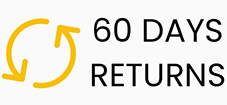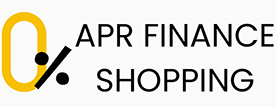




















A golf rangefinder is a precision device used to measure distances on the golf course. Its main function is to tell you exactly how far you are from a specific target — such as the flagstick, a bunker, or a hazard.
A rangefinder can give you the distance to:
By knowing these exact distances, golfers can make better club selections and shot decisions on every hole.
Yes — when used correctly, a golf rangefinder can significantly improve your performance by enhancing distance control, accuracy, and confidence.
Here’s how:
Most amateur golfers misjudge how far they hit each club. A rangefinder gives you precise yardage, helping you select the right club for the shot.
For example, knowing you’re 142 yards to the flag instead of “about 150” can be the difference between a birdie putt and missing the green.
By seeing how far hazards or lay-up zones are, you can plan each shot more strategically. Instead of always hitting driver, you might choose a 3-wood to stay short of a bunker — saving strokes over time.
Rangefinders aren’t just for the course. Many golfers use them during practice to track shot distances and build an accurate yardage chart for each club.
This data helps improve consistency and confidence during play.
Instead of pacing out yardages or guessing from course markers, a quick click gives you the number instantly. This speeds up decision-making and keeps the round moving.
Having accurate yardage takes the guesswork out of your game. Confidence leads to smoother swings — which almost always means better shots.
Most modern golf tournaments — including those under R&A and USGA rules — allow rangefinders, but only if slope (elevation) and weather compensation features are turned off.
Always check your competition’s local rules before using one.
A Golf Rangefinder is the best performance tool. Period. It turns uncertainty into data, helping you make effective and more confident decisions on the golf course
While it won’t fix your swing, it will improve your decision-making, course management, and distance control, which directly lead to lower scores.
For any golfer serious about improving their game, a rangefinder is one of the worthwhile investments you can make.
Alex Smith is the Head PGA Pro at Online Golf Shop. With over 20 years of experience in the golf industry, Alex has a passion for helping golfers improve their game. He shares trusted and authentic advice through tips, tricks, and thorough product reviews—always based on his own experiences and insights. Alex also helps shape our product selection, making sure it’s tailored to every golfer’s needs, helping you find the right equipment and strategies to play your best golf!
Frequently Asked Questions?
Yes. Golf rangefinders improve your game by providing exact distances, helping with club selection, boosting confidence, and reducing guesswork. They also speed up play and help you learn your average yardages for each club.
A golf rangefinder is used to measure precise distances on the course — such as the yardage to the flag, bunkers, hazards, or lay-up points. It helps golfers make more informed club selections and improves shot accuracy.
There are three main types of golf rangefinders:
Laser rangefinders use a laser beam to calculate distance to a specific target like the flag.
GPS rangefinders rely on satellite data to show distances to the front, middle, and back of the green.
Hybrid rangefinders combine both laser and GPS functions for ultimate accuracy.
Yes — most competitions under R&A and USGA rules allow rangefinders, as long as slope, elevation, and weather features are turned off. Always check the event’s local rules before using one in tournament play.
Absolutely. Beginners can benefit from learning their exact yardages early, which helps them understand how far they hit each club and develop consistency faster. It’s one of the best training tools for distance awareness.
Slope rangefinders measure both straight-line distance and elevation change, giving a “plays-like” yardage. Non-slope models measure only actual distance and are legal for competition use.

Phone: 020 8064 0105